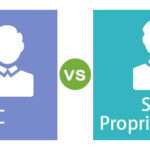A service-based business is an enterprise made of professionals whose work is to deliver work or help customers do a task. This type of business comprises a team of experts whose primary focus is to ensure that their customers benefit from the services they offer and are satisfied.
They offer help in consulting, hospitality, cleaning, accounting, transportation, to mention a few. Customer service experience determines the level of satisfaction your customers receive.
Customer service experience includes all the things a business does to ensure customer satisfaction which can be measured by:
- Timeliness in accomplishing a task
- Friendliness
- Quality of work done
- Conflict resolution
- Responsiveness to customer inquiries
How service-based companies work
Scope of work
Unlike product-based companies already having a product ready to release into the market, service-based companies build their services upon a customer’s request. As a result, the services are exclusively made for the clients and are customisable to fit their specific needs.
For service-based business companies, the customer is king. Therefore, your goal as a company is to ensure that your customer is happy and satisfied.
Human resource
Service-based companies hire people with excellent communication skills, which is the essential aspect of their business. Exceptional marketing skills and interpersonal skills are other qualifications they consider. In addition, personal grooming goes a long way in boosting the image of the company. The human resource team is the image of the company. People judge the company based on how their personnel look, speak and conduct themselves.
After successful hiring, the candidates are further trained on the company’s basics to understand how it operates and what is expected of them in their new roles. The candidates are then taught to speak the business’s language.
The new candidates are then oriented and initiated into the company’s culture, vision and mission statements, core values, and rules and regulations that govern employee conduct in the company.
The 7 P’s of marketing your service
The 7 P’s compromise the marketing mix whose role is to place the company in the market strategically.
Product
The product refers to the services you have to offer to your target market. It would help if you considered your product’s purpose and its packaging. Focusing on the experiences you want your customers to have will make your product more competitive in the market.
Price
Pricing refers to the entire method you will use to price your services. So, it is essential to consider your position in the market compared to your competitors as you set your prices.
Promotion
Promotion entails the process and strategies you will use to make your product known to the public. Your goal is to increase sales, so you need an effective marketing strategy to achieve this.
Place
The place encompasses your product’s location; that is where customers can find you. Therefore, your customers should be able to find your services quickly.
People
People include your entire workforce. Therefore, your team needs to be effective and portray a positive vibe to the customers.
Process
The process ensures that every task is done as it should and done on time. This provides a smooth flow of operations. Processes should be simple and have the ability to generate revenue.
Physical evidence
Seeing as man is a visual being, it is important to provide physical evidence to validate their purchases. It could be something as simple as a receipt. Physical evidence makes your customers feel valued and validates their purchase experience.
The life and survival of a service-based business are dependent on these elements. Because of this, the company needs to review its framework to incorporate these elements into its daily operations. The elements complement each other; none works in isolation.
Target Market
Knowing your target audience places you in a better position to outperform your competitors by customising your service to fit the needs of your market.
There are four segmentation levels you can use to zero in on your target market.
Geographic
This level entails determining the physical location of your target market. Is your target market local or international? If your business is online, you might want to target the forums or social networks where your target audience hangs out. It answers the ‘where are they’ question.
Demographic
This level entails determining the age, gender, income, marital status, among others of your target market. For starters, the survey could help you gain all this knowledge about your primary target market because it answers the ‘who are they’ question.
Psychographic
This level entails seeking out knowledge of the emotional drivers that cause your target market to make their buying decisions. Knowing this will help you design marketing messages that trigger your target market’s emotional drivers. This level answers the ‘why they buy” question.
Behavioural
At this level, you will find out the purchasing behavior of your target market, which is essential in developing good customer relations. This level answers the ‘how they buy’ question.
With the emerging market trends, you need to stay updated to remain relevant in the market. Therefore, ensure to keep abreast with the current market changes.



